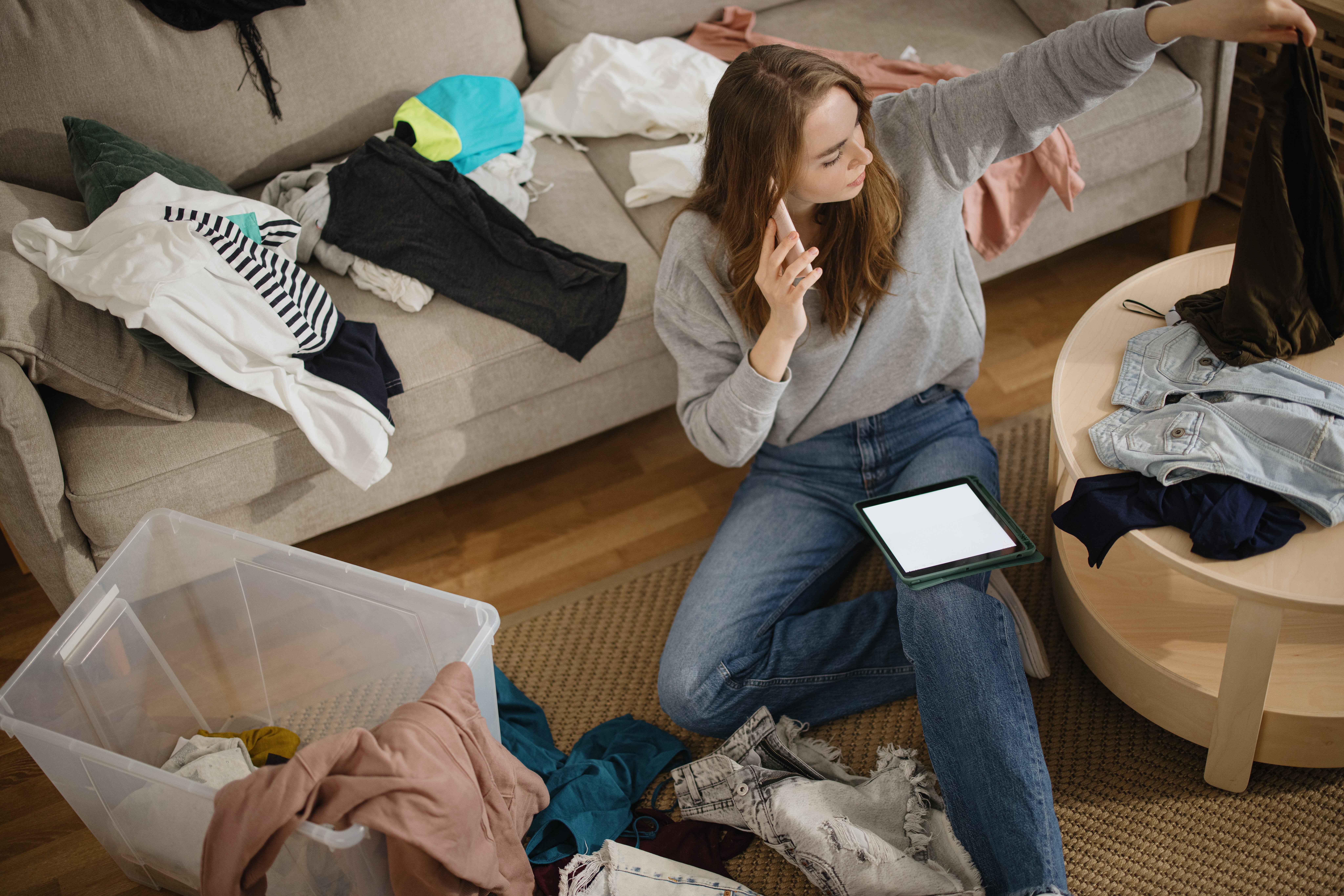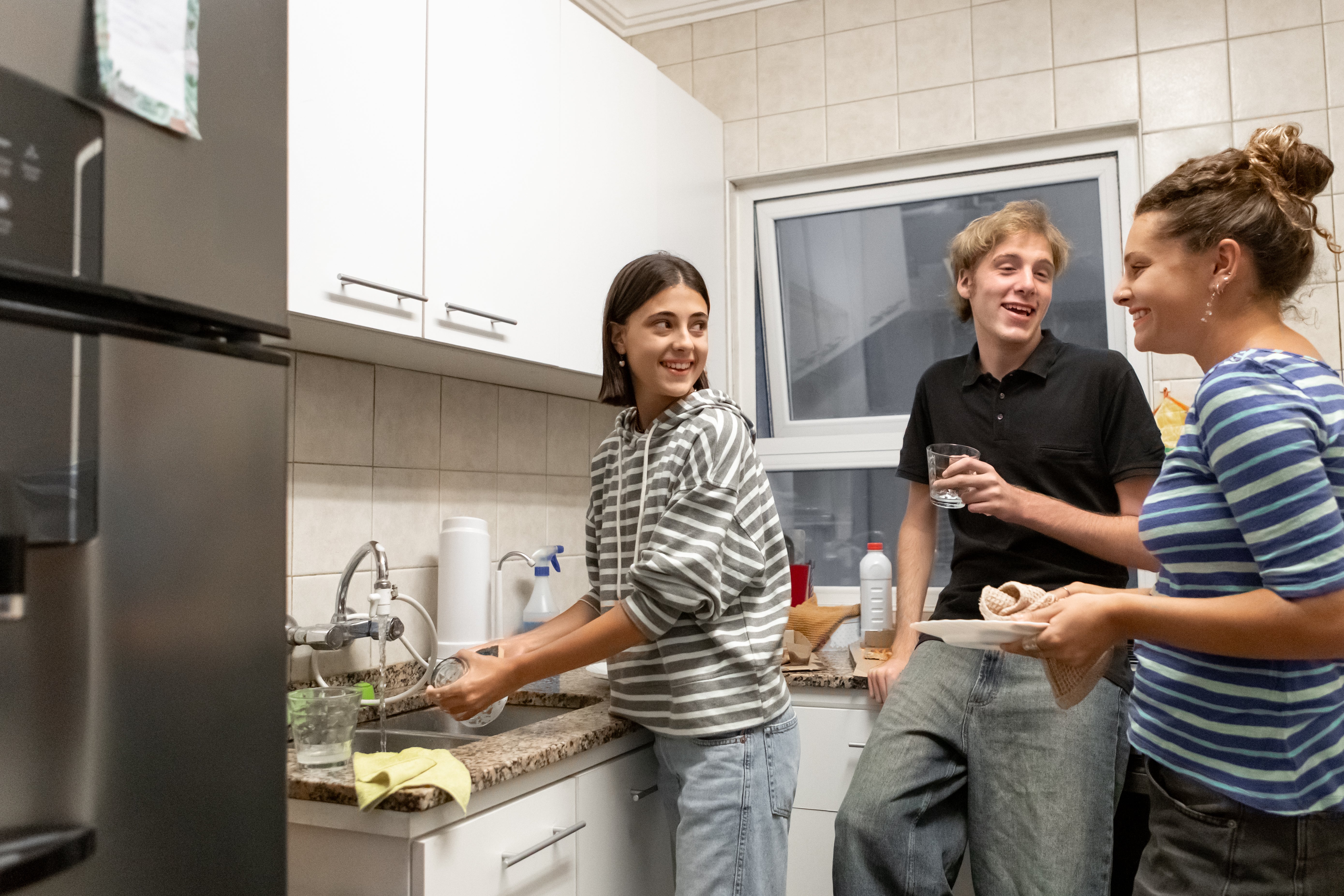Yes, it’s OK for young people to have a bi-weekly cleaner – here’s why

I used to think that people who paid others to clean were lazy. Too much money and not enough sense. A nose so high in the air that they’d be too off-balanced to even lift a vacuum cleaner. My mum took on extra work cleaning when I was a teenager. I met her off the school bus at various million-pound houses and failed to understand why their owners didn’t mop their own floors – or fold their own pants. The first part I can now comprehend; the jury’s still out on the latter.
The thing is, we’re all busy. Too busy. A survey of 2,000 British adults found that the majority of people don’t have sufficient time in their weekly schedules to dust and scrub thanks to longer working hours, a desire to maintain a social life, and childcare responsibilities. Despite an ongoing cost of living crisis, the number of UK households who employ cleaners rose a surprising 70 per cent from 2018 to 2023, according to the most recent YouGov poll.
Mared, a 28-year-old who lives in London with her best friend Bam, 29, says her parents never would have dreamed of hiring a cleaner when she was growing up. She cleaned her room – and they tackled the rest of their “hoarder” house as a family. “I am more middle class than them, culturally and financially,” the civil servant says. She employs Bianca, a bi-weekly cleaner, who charges the girls £60 per visit, to scrub areas they can’t reach, shift stubborn stains and, sometimes, fold their laundry or make their beds. “It’s a privilege to come home to a deep-cleaned house,” reflects Mared. “These things take up your evenings and weekends.”
For Mared, a cleaner is a little luxury that she can afford, at a time when grandeur is above the general public’s pay grade. To do this, she avoids splashing out on a gym membership or takeaway coffees, so she can take care of the space she spends most of her time in. “People are on a tighter budget – not going on holiday, or shopping at a budget supermarket – but there’s this trend of elevating the day-to-day,” she says. “This is my thing that I spend my money on.”
Mared adds: “My pay hasn’t gone up in years… but my priorities are changing. It used to be, ‘OK, I need to save a lot more because I need to eventually buy a house.’ Whereas now, I’m not putting that pressure on myself because I’m never going to be able to afford to buy a house – and I don’t want to any more. I want to make the most of the fact I have no responsibilities.”
She’s not alone. Housekeep, the UK’s biggest home-cleaning service, tells me young women in the 25-to-34 age bracket are their biggest group of users, with their overall customer base doubling since the pandemic. Another app, Wecasa appeals to Gen Z and millennial users on Instagram through memes and vibey graphics, offering beauty treatments like manicures, massages and haircuts, alongside two-hour cleaning services for as little as £35.80. Compared to other living expenses – household bills, weekly food shops, fuel and rent – this seems like a minimal add-on. In some rental agreements, often listed on SpareRoom, a cleaner is even included in the bills as a given; it’s expected that busy residents will need help to maintain the property.
Many who don’t have help cleaning their homes are markedly struggling to stay afloat of the domestic landslide, particularly in larger house shares. TikTok is awash with videos of those working from home admitting they put on loads of laundry, mop floors and scrub surfaces in between Zoom meetings in order to not live in grime – others are just sick of cleaning up their housemate’s clutter.

Twenty-nine-year-old Londoner Phoebe tells me she went on a cleaning strike after she returned from holiday and her shared home had entirely fallen into disarray. “None of it was my mess,” she says. “I wouldn’t take the bins out. I wasn’t cleaning anything. At all.” It was at this point the main dirt offender told Phoebe they desperately needed to discuss cleaning because people weren’t pulling their weight. “I was like, ‘Yeah, you!,’” she says. “The main problem was he was so horrified at the suggestion we’d get a cleaner that you’d think he’d been on the floor with a cloth and a bottle of Dettol since birth. The reality was he did just enough not to raise suspicion.” Phoebe swiftly moved out of the flat share and the pair no longer speak.
Twenty-six-year-old journalist Ella doesn’t have a cleaner to help maintain her three-woman house. “I wish! Not to be passive aggressive but I am the cleaner,” she says. Despite this frustration, the Grimsby native describes the same type of shame Mared experienced around the idea of hiring help. “I didn’t grow up with a housekeeper,” she says. “I was told ‘if you want to live in squalor then you live in squalor, you know? Life would be so much easier if I had a cleaner that came every other week – it would take a lot of pressure off – but at what moral cost for me?” she asks. “If I’m doing my stupid typing away at my laptop and they’re actually cleaning my house and doing manual labour, I’d feel so f***ing stupid,” she says.
KC Davis, a licensed therapist and author of How to Keep House While Drowning, says the idea of not being able to “keep up” with housework often provokes self-criticism, particularly among women. “We feel lazy, embarrassed, broken and not good enough,” she says. Essentially, we don’t cut ourselves slack, despite the fact we take on the majority of domestic labour in any given household, alongside going to actual work, and the time-heavy pursuit of upholding society’s beauty standards in the gym, hairdressers, nail salon and, increasingly, cosmetic surgery clinics. While men may suffer the patriarchy’s expectations to be a stable provider if and when they decide to have families, women are disproportionately judged for having a messy home or undone housework regardless, a recent study found. It’s no wonder increasing numbers want help.

“Housework is morally neutral,” Davis reassures. “There are so many reasons why people struggle to keep up and almost none of them have to do with being a failure or lazy. There are only so many hours in the day, and your income, family, health status, support, stress level, etc, all affect your body and brain’s ability to get everything done.”
Davis points out that, when Henry Ford championed the 40-hour working week, the idea was “eight hours for work, eight hours for play, eight hours for sleep”. But if you’re both the breadwinner and the homemaker, that structure simply doesn’t function. “What do you notice about that formula?” Davis asks. “Where do care tasks come in? The washing, cleaning, feeding, and all the other hundreds of tasks it takes to care for our environment and ourselves. Many people find there is little time to rest in a 40-hour week.”
Enter the cleaning apps. But for many of us who are yet to use, or can’t afford them, there’s a tendency to feel guilty if we rest – or God forbid have fun – before we complete tasks. “You do not have to earn recreation or connection,” Davis reminds. “They are just as important to your wellbeing as clean laundry or dishes.” And to the people who feel like failures for outsourcing domestic labour? “If you have the budget and desire to hire a cleaning service, there’s absolutely no reason not to,” Davis says. “You are buying yourself time, energy, and peace of mind, and that is worth every penny.”
[title_words_as_hashtags




